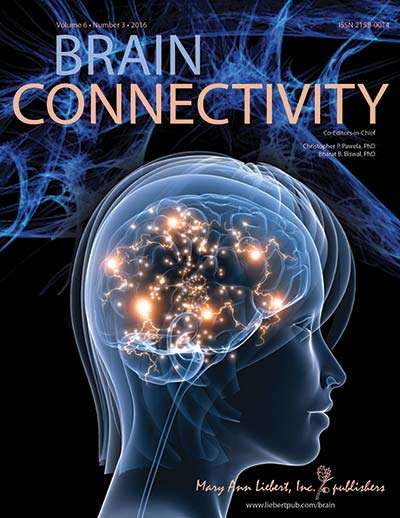Reduced brain connectivity in frontal cortex linked to propofol-induced loss of consciousness

A new study shows that loss of responsiveness induced by propofol, a commonly used anesthetic, is associated with greatly diminished brain connectivity in the frontal cortex and significant changes in resting state brain networks. The study, based on a novel method for constructing total brain connectivity maps and comparing them with results obtained for resting state networks, is published in Brain Connectivity, a peer-reviewed journal from Mary Ann Liebert, Inc., publishers. The article is available free on the Brain Connectivity website until May 14, 2016.
In "Propofol-Induced Frontal Cortex Disconnection: A Study of Resting State Networks, Total Brain Connectivity, and Mean BOLD Signal Oscillation Frequencies," Pieter Guldenmund and coauthors from University of Liège and CHR Hospital Citadelle (Liège, Belgium), National University of Colombia and Central University of Colombia (Bogotá), University of Western Ontario (London, Canada), and University of Wisconsin (Madison), used resting-state functional magnetic resonance imaging (fMRI) to determine changes in resting state brain networks, total brain connectivity, and mean oscillation frequencies of the regional blood oxygenation level dependent (BOLD) signal associated with propofol-induced mild sedation and loss of consciousness. The researchers conclude that diminished connectivity in the frontal lobes plays an important role in propofol-induced loss of responsiveness.
"Very little is understood about the biological mechanism of how an anesthetic produces sedation and loss of consciousness, especially in the brain," says Christopher Pawela, PhD, Co-Editor-in-Chief of Brain Connectivity and Assistant Professor of Anesthesiology, Medical College of Wisconsin. "Pieter Guldenmund and his colleagues have produced an elegant study using resting-state functional connectivity MRI to implicate the frontal lobes in the mechanism of action of propofol in the brain."
More information: Pieter Guldenmund et al. Propofol-Induced Frontal Cortex Disconnection: A Study of Resting-State Networks, Total Brain Connectivity, and Mean BOLD Signal Oscillation Frequencies, Brain Connectivity (2016). DOI: 10.1089/brain.2015.0369



















